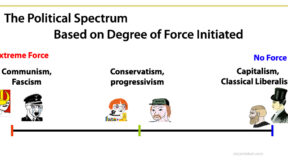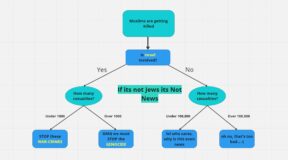By Jeff Frenkel

“The philosophy of the classroom today will be the philosophy of government tomorrow.”
This quote was made by Abraham Lincoln well over a century ago and is more meaningful today than it
was back then. Just about every level-headed adult knows that today’s progressive educational system is
in shambles. From declining standardized test scores to inadequate levels of reading comprehension,
along with the complete ideological indoctrination across all levels of schooling, we are in a crisis that
only a complete overhaul of education can begin to solve.
In order to give us the groundwork to explore what a proper educational system would look like, we first
need to briefly familiarize ourselves with the key philosophical influences on education in America over
the last 250 years. Historically speaking, there have been two distinct philosophical camps that have
dominated the trends in education. These are the traditionalists and the progressives.
The traditional camp states the goal of education is to instill the proper knowledge and morality in a
child based on the values of a culture at that particular place and time. Essentially, the child is to be a
passive learner where facts and moral ideals are simply instilled in a child by an authority or religious
figure, and the child’s job is to eagerly comply and internalize. The belief is that this process of
authoritatively forced obedience will eventually turn a child into an upstanding citizen.
Meanwhile, the progressive camp, which has been the dominant trend since the early 1900s, stands in
complete contrast. Their main argument is that children are not passive learners, but need an
environment where they can create their own knowledge through a flurry of activities, projects, and
group co-dependence. What this actually results in is that the child’s conclusions become detached from
facts, and instead their attention shifts to focus on less relevant information such as emotions or
feelings. Progressive educators believe that knowledge is driven primarily through social dynamics, so
there is no point in learning objective facts and scientific truths, as these are subject to the beliefs and
power structures present in a society at a given time. This is the basis for the dominant trends we see
today such as Critical Race Theory and the emphasis on equity.
Luckily for us, there is only one true antidote for all of this hysterical irrationalism that has plagued
education since its inception in America. And that is a true ‘Rational Education.’ So you may be thinking,
what exactly does a rational education entail, and what steps would we take to ensure our system is
operating rationally? Well, before we answer these questions, we need to outline clear definitions for
the key terms involved. In this case, the two most important words we will need to define are ‘Rational’
and ‘Education’.
Rationality can broadly be defined as making decisions based on facts as opposed to emotion,
while in a more tangible sense, reason is the faculty that identifies and integrates the material
provided by man’s senses (also known as perceptual data). 1
The proper definition of education is the systematic instruction of the young to develop in them
the powers necessary for mature life. Systematic refers to education that is deliberate,
organized, and long-range. 2
When viewed from this context, it becomes apparent that through proper instruction based on facts of
reality, we can develop a logical, independent, rational-minded adult. In the next series of posts we will
take on the task of exploring in-depth what a rational education looks like.
1 Rand, Ayn (1964). The Virtue of Selfishness
2 Peikoff, Leonard. Teaching Johnny to Think. The Ayn Rand Institute, 2014





2 Comments
Sima Frenkel
(October 19, 2021 - 5:42 pm)Your message is loud and clear. New generation needs to be able to look at the wold thru logic and broad thinking instead of following principals that are brought upon them without involvement of their innovation skills
Marcy Hippler
(October 20, 2021 - 10:53 pm)hey jeff, pretty cool,children should never be passive learners but explorers guided by their intellect and adults who allow them this freedom.
i think in the past people thought of children as vessels to fill or clay to mold.
waiting for more…..and i have a lot of questions for you!